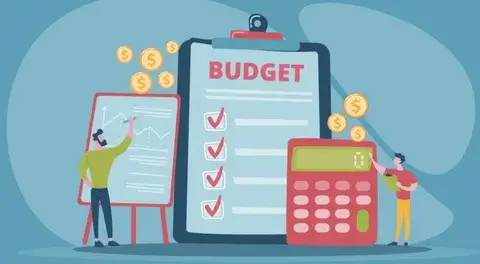In a world where keeping your money stable is very important, learning how to make a budget is very important. “Budget Tips: Explore useful methods to handle your money to make sure it works for you” goes into great detail about how to manage your money well and gives you a lot of useful tips and ideas. If you want to be financially successful, this can help you set reasonable goals, keep track of your daily spending, and find ways to save money. Personal funds can be hard to handle in today’s unstable economy, but anyone can become financially free if they have the right information and tools. Come with us as we learn the tricks to smart planning that will give you the power to control your money and build a safe future.

Understanding Your Financial Goals
Knowing your financial goals is the most important thing you can do to handle your money well. You have to decide what you want to do with your money, like getting a house, saving for retirement, or starting a business. You can plan your financial future by making goals that are clear, measurable, attainable, important, and have a due date. It’s important to look at your current financial position and set priorities for your goals based on your short- and long-term needs. Knowing what you want to achieve with your money will help you make smart choices and take action to reach your goals.
Assessing Your Current Financial Situation
Evaluating your financial situation is an important part of managing your money well. To get a good picture of your financial health, you need to look at your income, spending, assets, and debts. By looking at what’s going on in your life right now, you can see your strengths and weaknesses and make choices that will help your finances.
Analyzing Income and Expenses
To figure out your financial position, you need to know how much money comes in and how much goes out. Keeping track of your income and expenses helps you find trends and decide how to spend your money in a way that helps you reach your financial goals.
Assessing Assets and Liabilities
You can get a full picture of your wealth by listing your assets (like savings, investments, and land) and your debts (like loans and debts). This evaluation helps you make your finances more stable by letting you use your assets and handle your debts more effectively.
Identifying Areas of Overspending
Finding places where you might be spending too much lets you make the budget changes you need. By cutting costs or spending less on things you don’t need, you can put money into savings or paying off debt, which will improve your financial situation.
Planning for Future Financial Goals
Looking at your current financial situation can help you make goals for the future that are attainable. If you know where your money is at, you can make a plan to reach your goals, whether they are to save for a down payment, invest for retirement, or pay off your debt.
Creating a Realistic Budget
For financial security, making a Budget that you can stick to is very important. Setting clear financial goals is crucial. Estimate income, allocate funds for spending, savings, and debt repayment. Ensure budget reflects priorities. Set spending limits, track expenses diligently.
Setting Clear Financial Goals
Figure out your short- and long-term financial goals. For example, you might want to save money for an emergency, pay off debt, or start investing for retirement. Setting clear goals gives you direction and inspiration, which helps you make budgeting choices that will help you reach your financial goals.
Estimating Income Accurately
Add up all of your monthly pay, such as wages, salaries, bonuses, and any other money you make. Before you start making a budget, make sure that your estimates of income are accurate and reliable.
Allocating Funds for Expenses
Categorize your expenses into essential (e.g., housing, utilities, groceries) and optional (e.g., entertainment, dining out). Divide your money up in the right way, putting important costs first and leaving room for spending on other things within your budget.
Establishing Spending Limits
Based on your income and financial goals, set reasonable spending limits for each type of cost. Regularly keeping an eye on your spending helps you stick to your budget and make changes as needed to stay financially stable and make progress toward your goals.
Creating a Realistic Budget
Making a budget that you can stick to is important for managing your money well. It involves figuring out how much money you make, how important your costs are, and how much you can spend. You can make sure that your budget reflects your priorities and helps you handle your money well by setting clear financial goals and keeping careful records of your spending. This will give you more financial stability and peace of mind.
Evaluating Income Sources
Find out how much money you make each month from pay, salaries, bonuses, and other sources. Make sure your estimates of income are accurate so you can use them to make a good budget and plan your finances.
Prioritizing Expenses
Tell the difference between necessary (like housing and energy) and optional (like entertainment and eating out) costs. Assign funds properly, putting basic needs first while still allowing for spending on other things that don’t have to be paid for within your budget.
Establishing Spending Limits
Based on your income and financial goals, set reasonable limits for each type of cost. Spending should be tracked often to make sure it stays within budget and any necessary
Cutting Costs and Saving Money
Cutting costs and saving money are important for your financial health. It means finding places where you can cut costs and putting plans in place to save as much as possible. You can improve your financial health by becoming more frugal, negotiating your bills, and looking for deals. This will free up money that you can use to save for emergencies or invest for the future.
Identifying Expense Reduction Opportunities
Look at your spending to find places where you can save money. Try to get lower rates on things like utilities and insurance, cancel subscriptions you don’t use, and look for cheaper ways to meet your needs.
Adopting Frugal Habits
Adopt a simple way of life and put needs ahead of wants. Spending wisely means not buying things you don’t need on a whim and looking for deals or used items. Daily habits that are changed in small ways can save you a lot of money over time.
Negotiating Bills and Expenses
Talk to your service companies about lowering the prices of your bills, like cell phone, internet, or cable plans. Look into refinancing loans or combining debt as ways to lower your monthly payments and interest rates.
Maximizing Savings Opportunities
When you’re looking for necessities, use discounts, vouchers, and cash-back offers. You can get points or cash back on purchases by using reward cards and membership programs. Set up automatic payments to savings accounts to make sure you always save.
Building an Emergency Fund
For financial security, it’s important to start an emergency fund. It means putting money aside to deal with sudden costs or financial problems. By putting money into your emergency fund on a regular basis, you can protect yourself against things like losing your job, having a medical emergency, or needing big home repairs. This will give you peace of mind and financial security.

Setting Savings Goals
Figure out how much you want to save in an emergency fund by looking at how much you spend and owe each month. As a safety net in case of problems, try to save enough money to cover your living costs for three to six months.
Creating a Dedicated Savings Account
Set up a different savings account just for your emergency fund. Pick an account with good interest rates and quick access to your money. Stay away from accounts that charge a lot for withdrawals or have fines for doing so.
Automating Contributions
Set up your bank account to send money automatically to your emergency fund savings account. Small amounts added regularly can add up quickly over time, helping you reach your savings goals and build a strong backup fund.
Putting money into the future
To grow your money over the long run, you need to invest for the future. Putting money into different types of investments, like stocks, bonds, mutual funds, or real estate, with the goal of getting money back over time. You can build wealth and protect your financial future by starting early, spreading out your investments, and keeping up with market trends.
Understanding Investment Options
Learn about the different ways to spend and how their risk and return profiles compare. When choosing investments for your portfolio, you should think about things like how much risk you are willing to take, how long you have to make the investments, and your financial goals.
Setting Clear Investment Goals
Set clear goals for your investments, such as saving for retirement, paying for your kids’ college, or getting rich so you can live on your own. Setting clear goals gives you direction and lets you customize your investment plan to get the results you want.
Creating a Diversified Portfolio
Diversify your investments across a number of different asset types to lower your risk and increase your returns. Diversification protects you from market volatility and makes sure that your portfolio can handle changes in certain businesses or sectors.
Seeking Professional Advice
To make a personalized investment plan, you might want to talk to a financial manager or investment professional. A professional can give you useful advice, figure out how much risk you are willing to take, and suggest investment strategies that are right for your financial goals and situation.
Conclusion
In Conclusion, Budget Tips emphasizes the importance of financial management amid economic uncertainty. Setting realistic budgets, evaluating existing resources, and comprehending goals are essential first steps. Long-term financial success and stability can be attained by making cost reductions, saving carefully, and making intelligent investments. With careful financial preparation, you can overcome difficulties and create a stable future for yourself.











